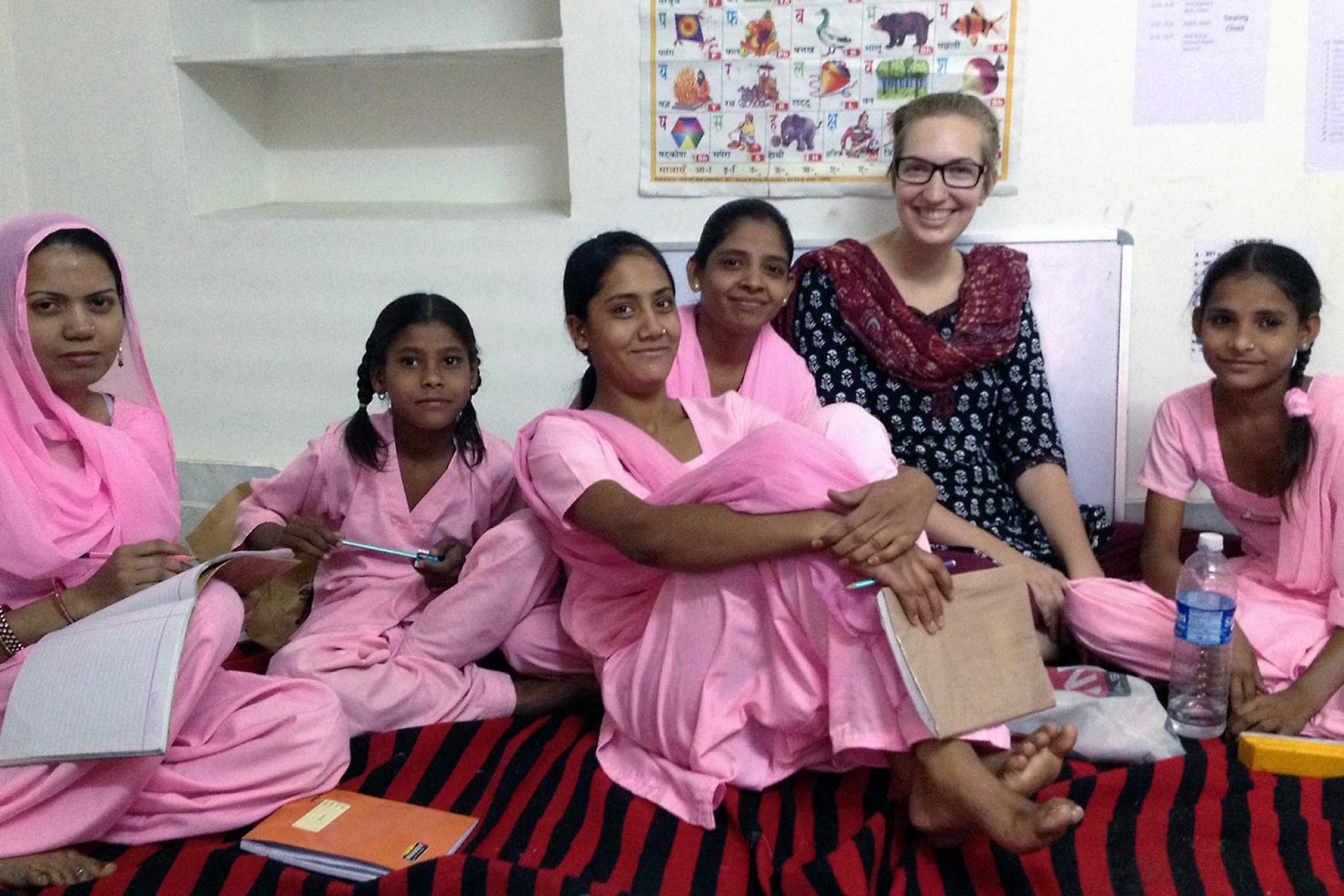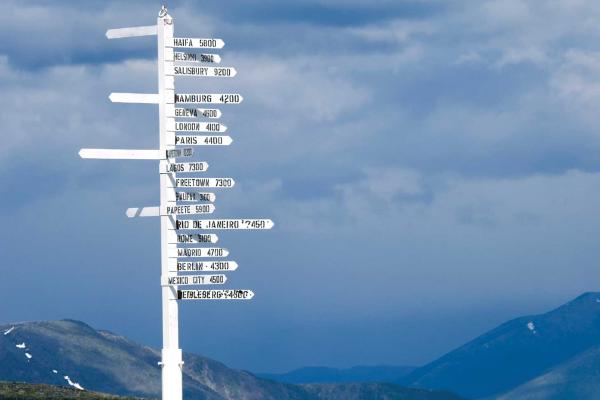Packed into the minivan, we jostle and bump along the road to the empowerment centre. Looking out the window is not for the faint-of-heart: rickshaws filled with whole families, motorbikes with four people crammed on (none of whom are wearing helmets), cows wandering the sides of the streets. It’s rush hour in Jodhpur and the sound of honking horns would intimidate anyone who wasn’t used to the ways of Indian drivers.
We stop along the way to pick up the staff; two Indian ladies who teach Hindi and sewing. While waiting, a woman wrapped in a tie-dyed saree comes up to the van window to beg for money. We say no to her every day, yet she persists, hoping we’ll change our minds.
With everyone in the van, we proceed to the Brothers for Sisters centre in one of the many slum areas. We turn off the main road at an intersection where ladies are drying their home-dyed scarves—this morning the fabric is a vibrant orange, making for a great contrast from the dust collected around them. Garbage is piled on the sides of the roads, mixed with water and flies. A goat sits in the sun attached to a post, for some reason the owner has put him in a coat—yes, a goat in a coat. (I couldn’t make that up).
Getting out of the van, we are always greeted with smiles and shouts of “hello” from the young children running around, eyes often outlined with charcoal, clothes covered in dirt, and occasionally pant-less. They’ll greet us again with waves and “bye-byes” when we leave the centre in a few hours.
The centre is upstairs in a non-descript building. Some of the girls wait for the teachers to unlock the classroom doors, while others are already practicing self-defence with an instructor on the roof. Here, self-defence mainly takes the form of stick-combat. Even the Gulabi Gang (a team of Indian women working towards justice for abused women) learn self-defence with a bamboo stick, so they can beat their attacker. I seriously hope that if one of the girls is ever in a bad situation, they will be able to use the skills they’ve learned.
Recently, our centre has implemented a morning exercise and meditation routine, so the girls get into two rows and a volunteer leads the session. I join at the back and often the girls take a peak to see what I’m up to or see if I can actually touch my toes during stretching. Meditation is followed by singing the Sambhali Trust’s anthem (in both English and Hindi) and then finally it is class time.
The class numbers often change due to unexpected absences or wedding season, but I seem to consistently have five people in my medium-level math class. Two of the girls run in ahead of me to erase the white board and get dibs on writing today’s date. Two others slowly head over, while I search for the fifth girl who would rather be sewing than dealing with multiplication. A rug is set out on the floor for our sitting comfort and the six of us sit in a circle around the board as I begin teaching today’s lesson with the girls copying in their notebooks. It has been one week since I’ve been in charge of this class, so I’ve gotten to know the different skill sets and eagerness and when an occasional English-Hindi translation is needed.
My second class is much more varied. I’m teaching beginner English, which includes as the alphabet, reading and basic vocabulary. Some days I have three students, others I have eight, with ages ranging from six to 40 years. The Hindi teacher is often available for any required translations. Remember, I’m not teaching the alphabet to kids who have grown up surrounded by English speakers, I’m teaching the alphabet and pronunciation to people who have no basic understanding of the language. This presents a unique set of challenges, but ones that I am learning from.
For the rest of the morning, the girls are sewing or participating in Hindi class. Like any NGO, there is turnover with volunteers, so we make sure to write down what we teach each day to help with continuity of lessons. When the girls leave, there are usually “goodbyes” and “see you tomorrows,” but today for some reason they’ve all decided it would be funny to shake our hands goodbye! Once one girl starts, they all want to. It is a great feeling to know the girls are more comfortable with me, as they only just met me a week ago.
We get a phone call from our mini-an saying he is downstairs waiting for us, so we start rounding-up volunteers from other centres before heading back to the guesthouse to have lunch and work on our afternoon projects. On our way, we narrowly avoid a car accident, we pass through a (slightly stinky) road filled with cows and we chat about the successes or challenges of the morning, often asking each other for suggestions. By the time we reach the guesthouse, we’re 12 people in an eight-person van, but I think by now that doesn’t surprise you.
That night, I plan my lessons for the next day. I’m still completely new at this but I can’t wait for tomorrow when we pack into the minivan and start the journey again.
Add this article to your reading list




